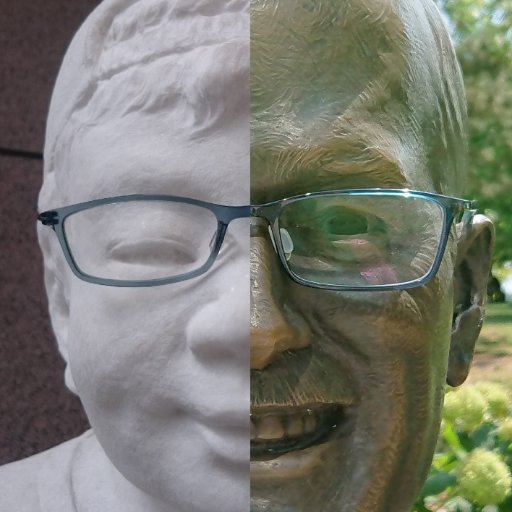結果
| 問題 | No.1301 Strange Graph Shortest Path |
| コンテスト | |
| ユーザー |
 n_vip n_vip
|
| 提出日時 | 2020-11-27 22:08:08 |
| 言語 | C++17 (gcc 15.2.0 + boost 1.89.0) |
| 結果 |
WA
|
| 実行時間 | - |
| コード長 | 3,963 bytes |
| 記録 | |
| コンパイル時間 | 2,378 ms |
| コンパイル使用メモリ | 151,180 KB |
| 最終ジャッジ日時 | 2025-01-16 07:29:26 |
|
ジャッジサーバーID (参考情報) |
judge3 / judge2 |
(要ログイン)
| ファイルパターン | 結果 |
|---|---|
| sample | AC * 2 |
| other | AC * 28 WA * 5 |
ソースコード
#include <string>
#include <vector>
#include<iostream>
#include<cstdio>
#include<cstdlib>
#include<stack>
#include<queue>
#include<cmath>
#include<algorithm>
#include<functional>
#include<list>
#include<deque>
#include<bitset>
#include<set>
#include<map>
#include<unordered_map>
#include<unordered_set>
#include<cstring>
#include<sstream>
#include<complex>
#include<iomanip>
#include<numeric>
#include<cassert>
#include<random>
#define X first
#define Y second
#define pb push_back
#define rep(X,Y) for (int (X) = 0;(X) < (int)(Y);++(X))
#define reps(X,S,Y) for (int (X) = (int)(S);(X) < (int)(Y);++(X))
#define rrep(X,Y) for (int (X) = (int)(Y)-1;(X) >=0;--(X))
#define rreps(X,S,Y) for (int (X) = (int)(Y)-1;(X) >= (int)(S);--(X))
#define repe(X,Y) for ((X) = 0;(X) < (Y);++(X))
#define peat(X,Y) for (;(X) < (Y);++(X))
#define all(X) (X).begin(),(X).end()
#define rall(X) (X).rbegin(),(X).rend()
#define eb emplace_back
#define UNIQUE(X) (X).erase(unique(all(X)),(X).end())
#define Endl endl
#define NL <<"\n"
#define cauto const auto
using namespace std;
using ll=long long;
using pii=pair<int,int>;
using pll=pair<ll,ll>;
template<class T> using vv=vector<vector<T>>;
template<class T> inline bool MX(T &l,const T &r){return l<r?l=r,1:0;}
template<class T> inline bool MN(T &l,const T &r){return l>r?l=r,1:0;}
//#undef NUIP
#ifdef NUIP
#include "benri.h"
#else
#define out(args...)
#endif
#ifdef __cpp_init_captures
template<typename T>vector<T> table(int n, T v){ return vector<T>(n, v);}
template <class... Args> auto table(int n, Args... args){auto val = table(args...); return vector<decltype(val)>(n, move(val));}
#endif
template<class A,class B> pair<A,B> operator+(const pair<A,B> &p,const pair<A,B> &q){ return {p.X+q.X,p.Y+q.Y};}
template<class A,class B,class C,class D> pair<A,B>& operator+=(pair<A,B> &p,const pair<C,D> &q){ p.X+=q.X; p.Y+=q.Y; return p;}
template<class A,class B> pair<A,B> operator-(const pair<A,B> &p,const pair<A,B> &q){ return {p.X-q.X,p.Y-q.Y};}
template<class A,class B,class C,class D> pair<A,B>& operator-=(pair<A,B> &p,const pair<C,D> &q){ p.X-=q.X; p.Y-=q.Y; return p;}
template<class A,class B> istream& operator>>(istream &is, pair<A,B> &p){ is>>p.X>>p.Y; return is;}
template<class T=ll> T read(){ T re; cin>>re; return move(re);}
template<class T=ll> T read(const T &dec){ T re; cin>>re; return re-dec;}
template<class T=ll> vector<T> readV(const int sz){ vector<T> re(sz); for(auto &x:re) x=read<T>(); return move(re);}
template<class T=ll> vector<T> readV(const int sz, const T &dec){ vector<T> re(sz); for(auto &x:re) x=read<T>(dec); return move(re);}
vv<int> readG(const int &n,const int &m){ vv<int> g(n); rep(_,m){ cauto a=read<int>(1),b=read<int>(1); g[a].pb(b); g[b].pb(a);} return move(g);}
vv<int> readG(const int &n){ return readG(n,n-1);}
const ll MOD=1e9+7; //998244353
pair<ll, set<pii>> dij(vv<pair<int,ll>> &g,int s,int t){
typedef pair<ll,int> Que;
priority_queue<Que,vector<Que>,greater<Que> > que;
int n=g.size();
vector<pair<ll,int>> d(n);
fill(all(d),make_pair(ll(1e18),-1));
d[s]={0,-1};
que.emplace(0,s);
while(que.size()){
Que p=que.top();que.pop();
if(d[p.Y].X<p.X)continue;
for(auto e:g[p.Y]) if(MN(d[e.X],d[p.Y]+make_pair(e.Y,(int)MOD))){
que.emplace(d[e.X].X,e.X);
d[e.X].Y=p.Y;
}
}
out(d,1);
set<pii> st;
for(int v=t;v>=0;){
cauto w=d[v].Y;
st.emplace(v,w);
st.emplace(w,v);
v=w;
}
return {d[t].X,st};
}
int main(){
ios_base::sync_with_stdio(false); cin.tie(0);
cout<<fixed<<setprecision(0);
cauto n=read();
cauto m=read();
vector<tuple<int,int,int,int>> es(m);
for(auto &[a,b,c,d]:es) cin>>a>>b>>c>>d, --a, --b;
vv<pair<int,ll>> g(n);
for(cauto &[a,b,c,d]:es){
g[a].eb(b,c);
g[b].eb(a,c);
}
cauto [d,ban]=dij(g,0,n-1);
out(d,ban,1);
{
vv<pair<int,ll>> g(n);
for(cauto &[a,b,c,d]:es){
cauto C=(ban.count(pii(a,b))?d:c);
g[a].eb(b,C);
g[b].eb(a,C);
}
cout<<d+dij(g,0,n-1).X NL;
}
return 0;
}
